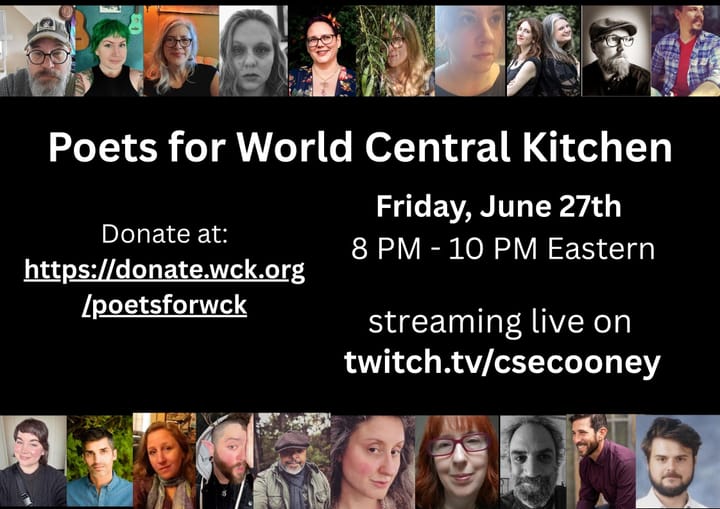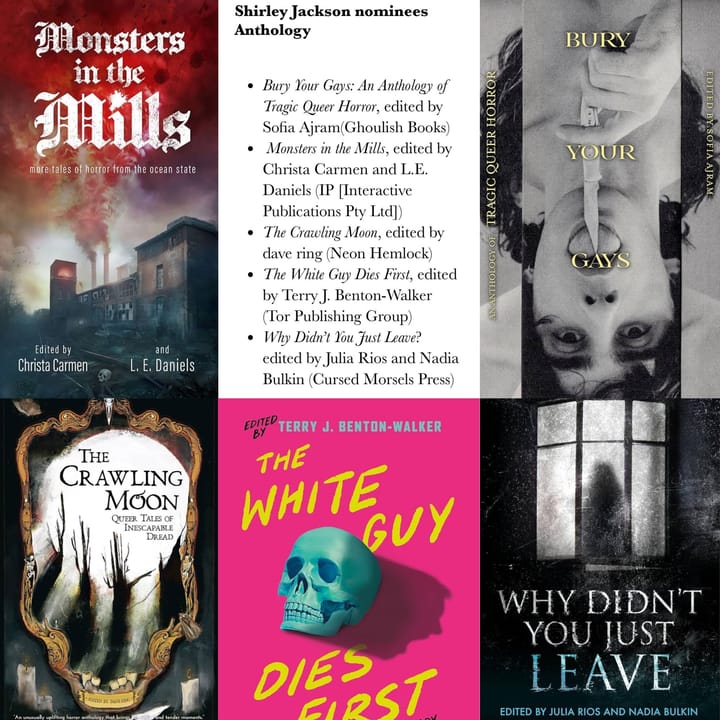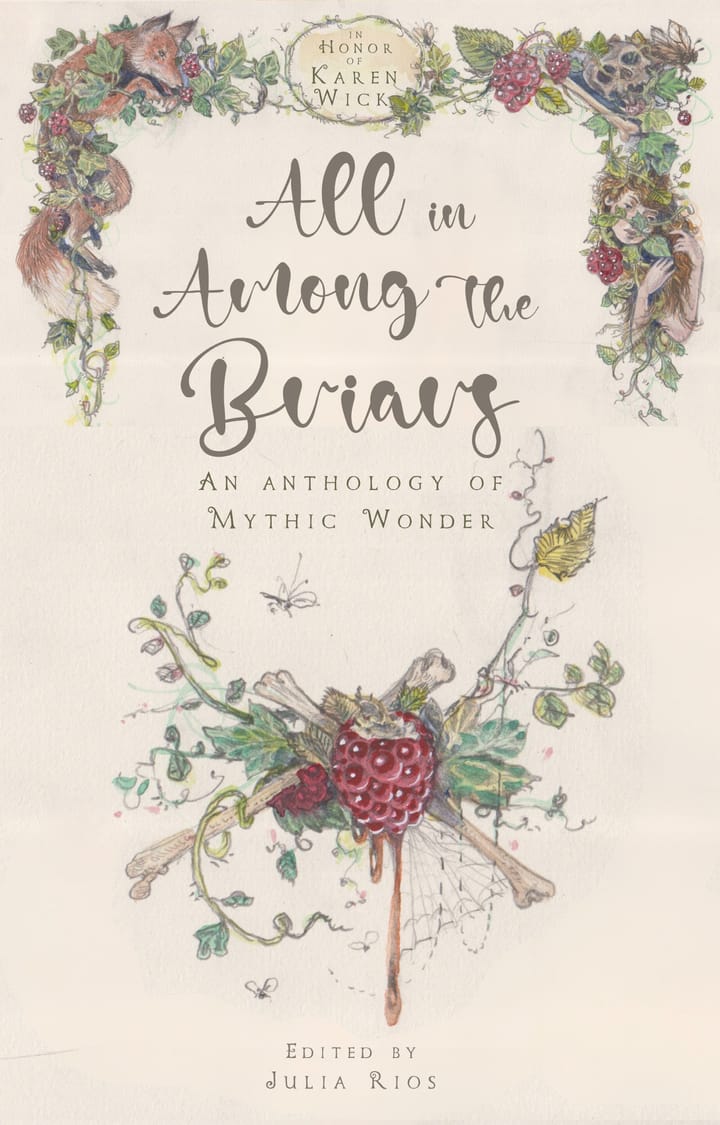Celebrating Phenderson Djèlí Clark
On Saturday, “The Secret Lives of the Nine Negro Teeth of George Washington” by Phenderson Djèlí Clark won the Locus Award for Best Short Story!
Locus Magazine hosts the awards ceremony each year in Seattle, Washington as part of a weekend of workshops and panels. I’ve never been myself, but apparently everyone wears Aloha shirts to the ceremony, and it sounds like a really fun time. This year two stories I edited were finalists, but I couldn’t swing a trip to Seattle (I’m still trying to put together all the cash I need to cover my upcoming travel to Ireland for Worldcon in August). Since the Locus Award coordinators want to recognize editors and publishers as well as authors, I asked Amal El-Mohtar if she would accept for me in case either story should win.
Now, this is a hard thing, writing a speech for an award given to a story written by someone else. I am touched that the Locus Awards wanted to honor me, but also, I feel pretty strongly that the important thing about an individual story winning an award is the story itself. So this meant writing two speeches and sending them Amal’s way: one for Phenderson’s story, and one for the amazing “STET” by Sarah Gailey. This would have been challenging no matter what (though a wonderful challenge, to be sure), but on top of everything else, “Secret Lives” is a powerful story about the oppression of Black people by a Black author, and I really wanted to be respectful of that and not take attention away from it.
Here is what I sent, and what Amal read aloud at the Locus Awards ceremony:
Thank you so much to everyone involved with the Locus Awards. I wish I could be there with you, celebrating in tropical finery, but instead I’m actually teaching a class on the opposite coast right now. We’re talking about how the best stories stick with us long after we finish reading them. They burrow into our minds and hearts and souls. They often make us feel uncomfortable, but in the best possible way. Both of the Locus Award finalist stories that I edited in 2018 do this. I am extremely honored to have worked with Phenderson Djèlí Clark and Sarah Gailey, and even more honored that these pieces that I worked on and love so much are sitting alongside so many other brilliant and amazing stories. I’m especially pleased that four of this year’s short story finalists are by Black authors, because Black lives and Black stories matter.
Stories remind us of our history and help us shape our future. Phenderson’s story is hopeful and bitter and unflinching and wondrous all at the same time. As an editor, when a story like that comes my way, it’s a very special gift, and editing it is a joy. Thank you to everyone who read it, who delighted in it, who clings, as I do, to the hope and wonder, and refuses to forget the hard and bitter parts of history. And thank you, Phenderson, for writing it.
About this story:
When I started at Fireside, there was a transition period wherein Brian J. White, the previous editor, had a selection of stories still under consideration from the last submissions window. One of the first things I did there was to read those stories and tell him which ones I would choose to publish. He made the final selection, so he was technically the acquiring editor for this story, and I note that for two reasons:
1) Because Brian deserves some credit for that. I did not have full editorial authority at that point, so he could have gone against my opinion and not accepted this story, but he chose to accept it.
2) Because this story was so powerful that Elsa Sjunneson-Henry and Brian and I all agreed that it was something we wanted to publish. At Strange Horizons, where I first started editing in 2012, the senior editorial team always had to come to consensus on which stories to accept. In practice that usually meant one or two people were highly enthusiastic and the remaining team members were okay with it even if it wasn’t their first choice. It was rare for a story to make everyone who read it get truly excited. Phenderson’s story was like that, though. I don’t know if he sent it anywhere else before he sent it to Fireside, but I count myself extremely lucky that he sent it to a place where I happened to be an editor. I was delighted to have the opportunity to edit it, and all of us were delighted to publish it. Even though Brian was generally not too interested in stories formatted as a series of vignettes, Elsa and I both felt it was a definite yes because it was just so good. This one, Brian agreed, was special.
When Fireside started publishing monthly essays, we knew we wanted one by Phenderson to complement his story. “Imagining the Past: Speculative Fiction and the Recovering of Black History” by Phenderson Djèlí Clark and edited by Elsa Sjunneson-Henry was the final product. We published it same week as the story, to coincide with Presidents’ Day. The essay itself went up on George Washington’s birthday.
Phenderson also wrote a blog post called “On Slavery, Magic, and the Negro Teeth of George Washington” all about his extensive research into the history behind this story.
This story won a Nebula Award in May and a Locus Award in June. It’s also a finalist for the Hugo Award, which will be coming up in August. I’m thrilled that the rest of the world is noticing it and reading it. I hope every US citizen who does is thinking hard about what it means to be American. This is about history and oppression, but it is also about breaking unequal power dynamics. It’s a story that tells us we have a hard past, but shining a light on that truth is one step in the direction of equality and justice. Racist oppression continues to be a major problem in the United States, and I am honored that Phenderson trusted us to boost his voice and share a tiny piece of this fight for a better world.


